"Reflections from Trappist, Kentucky"
by the Rt Revd Dom Sean Jackson OSBA
I made my first retreat to the Abbey of Gethsemani in July of 2005, having been introduced to the writings of their most famous monk, Thomas Merton (Fr. M. Louis in the Abbey) a few months prior, while on my first-ever retreat at St. Leo Abbey just outside of Tampa, Florida. The book I coincidentally picked up at St. Leo’s, which would ultimately impact and alter my spirituality in ways I never imagined, wasn’t one of his more famous works like Seven Story Mountain or New Seeds of Contemplation, but rather a far-lesser known work called Prayer and Spiritual Direction. It was written in the manner I’d come to recognize as Merton’s unique approach: straight-forward, to the point, full of enormous power and wisdom, and no shortage of humor. However, it was the bookmark I found within the book itself that made me an instant devotee of this spiritual giant. It was an excerpt from Thoughts in Solitude that is sometimes referred to as the Merton Prayer:
“ My Lord God,
I have no idea where I am going.
I do not see the road ahead of me.
I cannot know for certain where it will end.
nor do I really know myself,
and the fact that I think I am following your will
does not mean that I am actually doing so.
But I believe that the desire to please you
does in fact please you.
And I hope I have that desire in all that I am doing.
I hope that I will never do anything apart from that desire.
And I know that if I do this you will lead me by the right road,
though I may know nothing about it.
Therefore will I trust you always though
I may seem to be lost and in the shadow of death.
I will not fear, for you are ever with me,
and you will never leave me to face my perils alone.”
“ My Lord God,
I have no idea where I am going.
I do not see the road ahead of me.
I cannot know for certain where it will end.
nor do I really know myself,
and the fact that I think I am following your will
does not mean that I am actually doing so.
But I believe that the desire to please you
does in fact please you.
And I hope I have that desire in all that I am doing.
I hope that I will never do anything apart from that desire.
And I know that if I do this you will lead me by the right road,
though I may know nothing about it.
Therefore will I trust you always though
I may seem to be lost and in the shadow of death.
I will not fear, for you are ever with me,
and you will never leave me to face my perils alone.”
When I returned home from the retreat, I was having dinner with a friend, an older, retired Roman Catholic priest, and I asked him if he ever heard of this Thomas Merton. He informed me that he had of course, and in fact during his days in seminary, Merton was the most-read Catholic author in the world. He immediately recommended Seven Story Mountain and some of the more popular books that I would subsequently read and re-read many times over.
Seven Story Mountain proved to be something like a spiritual Atom Bomb dropped without warning in the center of my Being. At the time, I was the owner of a fairly-busy real estate firm in South Florida and working 6-7 days per week in what has become known as “the real estate bubble” of the early 2000’s. I immediately set about making plans to visit this monastery that I couldn’t stop reading and thinking about. I’ll never forget my first contact with the guest master at the time, Br. Stephen (now deceased) and feeling like I had made contact with an alien population in another galaxy somewhere in the universe. I later learned that Br. Stephen was very quiet and introverted- even by Trappist standards!
The drive to the Abbey from the airport in Louisville is just over an hour and very beautiful and scenic. When I arrived at the Abbey, it felt as if I was approaching Mount Sinai. I felt chills go down my spine when I encountered the words over the Abbey gate that Merton wrote about in his first visit to the monastery so many years ago: God Alone. There are signs everywhere in and around the monastery that read: Silence is Spoken Here. However, I was greeted by a friendly monk with a huge smile, who offered to show me to my room. He let me know that all of the guest rooms were full and hoped I didn’t mind staying within the Abbey itself, on one of the wings no-longer occupied by the monks. It was about 3:30 in the afternoon and he let me know that Vespers started promptly at 5:30, followed by supper. I’ll never forget the first time chanting the Office with the monks and the feeling that I had somehow found myself surrounded by a choir of angels. The chant was simple yet beautiful; and the organ, old but powerful. Supper was a simple but tasty vegetarian meal (the Trappists, at least at Gethsemani, do not eat meat). On my way back to my room after supper and before Compline, I was greeted by an elderly black monk (Br. James) who didn’t seem to mind breaking the silence to ask me how my retreat was going. He also wanted to know my name. When I told him “Sean,” he replied with a big smile, “That’s a good name… When I came here in 1960, Brother Sean was my Guardian Angel.” I later learned that was the term given for the monk who helps the new postulant with the nuances and customs of “the life.” A short while later I found myself in the darkened Abbey Church, lit only by a candle under the beautiful Icon of Our Lady, chanting Compline, before receiving the final blessing from the Abbot and returning to my “cell.” I spent the next days praying with the monks, walking the beautiful grounds in silence, prayer, and reflection, journaling, and of course paying my respects to the monk who drew me to the place. Merton’s grave looks exactly like the other hundreds of graves in the Abbey cemetery: a simple, fading- white cross with the name, “Fr. M Louis Merton: 1915-1968.” I spent some time in prayer with my new spiritual hero and thanked him for drawing me to this holy place with his powerful writing.
I spent only 3 days there on that trip, but I couldn’t stop thinking about the place on my return to “the world.” One of the first things I noticed was that upon arriving at the monastery, the strict silence seemed overwhelming and maybe even intimidating; but in a short amount of time, it became not-only-comfortable, but even desirable. The other effects were immediate, I began creating periods of silence in my life at home, particularly in the early mornings and again in the evenings, in addition to increasing my recitation of the Office to include Vigils and sometimes the “Little Hours,” as well as attendance at Daily Mass. Perhaps most significantly, I couldn’t stop thinking- dare-I-say- fantasizing about the place. Every day at some point I would find myself daydreaming about what the monks were doing and wishing I was there. This began a series of subsequent visits-at least a dozen or so- over the next two years. On one such trip, I asked one of the monks, “If I wanted to come here and do this, is there someone I should speak to?” He replied with a smile and full belly laugh, “Yes, a psychiatrist!” before letting me know who the vocation director was and where he could be found. What occurred to me at some point was significant: I initially came to this monastery because of Thomas Merton, but I kept returning back because of the place itself and the monks who lived there presently. I never would have anticipated the deep and abiding joy (let alone the capacity for such humor) I found with nearly every interaction with the men of this notoriously austere Order.
Seven Story Mountain proved to be something like a spiritual Atom Bomb dropped without warning in the center of my Being. At the time, I was the owner of a fairly-busy real estate firm in South Florida and working 6-7 days per week in what has become known as “the real estate bubble” of the early 2000’s. I immediately set about making plans to visit this monastery that I couldn’t stop reading and thinking about. I’ll never forget my first contact with the guest master at the time, Br. Stephen (now deceased) and feeling like I had made contact with an alien population in another galaxy somewhere in the universe. I later learned that Br. Stephen was very quiet and introverted- even by Trappist standards!
The drive to the Abbey from the airport in Louisville is just over an hour and very beautiful and scenic. When I arrived at the Abbey, it felt as if I was approaching Mount Sinai. I felt chills go down my spine when I encountered the words over the Abbey gate that Merton wrote about in his first visit to the monastery so many years ago: God Alone. There are signs everywhere in and around the monastery that read: Silence is Spoken Here. However, I was greeted by a friendly monk with a huge smile, who offered to show me to my room. He let me know that all of the guest rooms were full and hoped I didn’t mind staying within the Abbey itself, on one of the wings no-longer occupied by the monks. It was about 3:30 in the afternoon and he let me know that Vespers started promptly at 5:30, followed by supper. I’ll never forget the first time chanting the Office with the monks and the feeling that I had somehow found myself surrounded by a choir of angels. The chant was simple yet beautiful; and the organ, old but powerful. Supper was a simple but tasty vegetarian meal (the Trappists, at least at Gethsemani, do not eat meat). On my way back to my room after supper and before Compline, I was greeted by an elderly black monk (Br. James) who didn’t seem to mind breaking the silence to ask me how my retreat was going. He also wanted to know my name. When I told him “Sean,” he replied with a big smile, “That’s a good name… When I came here in 1960, Brother Sean was my Guardian Angel.” I later learned that was the term given for the monk who helps the new postulant with the nuances and customs of “the life.” A short while later I found myself in the darkened Abbey Church, lit only by a candle under the beautiful Icon of Our Lady, chanting Compline, before receiving the final blessing from the Abbot and returning to my “cell.” I spent the next days praying with the monks, walking the beautiful grounds in silence, prayer, and reflection, journaling, and of course paying my respects to the monk who drew me to the place. Merton’s grave looks exactly like the other hundreds of graves in the Abbey cemetery: a simple, fading- white cross with the name, “Fr. M Louis Merton: 1915-1968.” I spent some time in prayer with my new spiritual hero and thanked him for drawing me to this holy place with his powerful writing.
I spent only 3 days there on that trip, but I couldn’t stop thinking about the place on my return to “the world.” One of the first things I noticed was that upon arriving at the monastery, the strict silence seemed overwhelming and maybe even intimidating; but in a short amount of time, it became not-only-comfortable, but even desirable. The other effects were immediate, I began creating periods of silence in my life at home, particularly in the early mornings and again in the evenings, in addition to increasing my recitation of the Office to include Vigils and sometimes the “Little Hours,” as well as attendance at Daily Mass. Perhaps most significantly, I couldn’t stop thinking- dare-I-say- fantasizing about the place. Every day at some point I would find myself daydreaming about what the monks were doing and wishing I was there. This began a series of subsequent visits-at least a dozen or so- over the next two years. On one such trip, I asked one of the monks, “If I wanted to come here and do this, is there someone I should speak to?” He replied with a smile and full belly laugh, “Yes, a psychiatrist!” before letting me know who the vocation director was and where he could be found. What occurred to me at some point was significant: I initially came to this monastery because of Thomas Merton, but I kept returning back because of the place itself and the monks who lived there presently. I never would have anticipated the deep and abiding joy (let alone the capacity for such humor) I found with nearly every interaction with the men of this notoriously austere Order.
On Saturday’s at the Abbey, Reconciliation and Spiritual Direction is offered to retreatants. I signed up for spiritual direction on the time sheet and showed up at the appointed time to find Fr. Matthew Kelty sitting in his wheel chair and waiting for me. I had been reading Fr. Matthew’s memoirs and poetry for the past year or so and knew he was now in the infirmary (he was 91 or 92 at the time and one of Merton’s Novices from his time as Novice Master) and could not have imagined he would be the monk with whom I was to meet. Needless to say, it was quite a memorable period of spiritual direction! On another occasion, I had a similarly surreal experience. This time, I was staying at the Abbey for 10 days, having spoken at length with the vocation director, and was there to spend those 10 days in the Novitiate, in choir with the monks, and receiving a job every day like the postulants. The idea was to give me a better idea of the reality of the life. I was scheduled to interview with the Novice Master, Prior, and Abbot.
It was an amazing experience. My first time in choir (as opposed to the retreatant section of the Abbey Church) made me feel like I was playing “short stop” for the New York Yankees! I worked every day like the other monks from after Terce until Sext, and then had my afternoons free. I generally used the time to walk around the many acres of woods surrounding the Abbey. One day, an elderly monk in a jeep (Br. Conrad) asked if I wanted to take a ride with him. I accepted, not knowing that he was driving me up to Merton’s Hermitage, which is strictly off-limits to visitors without special invitation or permission. Br. Conrad told me about his experience of Fr. Louis as his Novice Master and couldn’t stress enough that-except for his role/ office as Novice Master-he was not seen as different from any of the other monks. He laughed recalling how dangerous Merton was with an axe or any other tool for that matter, which never stopped him from wanting to do the physical work like the rest of the Community. He laughed even harder telling me how they once got him a jeep to make his trips back and forth from the Hermitage to the Abbey a little easier, but that Merton nearly killed himself learning how to drive and the idea was quickly scrapped. Mostly he recalled his warmth, humility, and ability to teach and explain complicated spiritual matters with amazing accessibility. He allowed me to spend 20 or so minutes alone in the Hermitage while he ran his errand before picking me up on his way back to the monastery, for which I am most grateful. Being in that place- so special and important to Merton and his life of prayer was as powerful for me as any shrine I’ve visited before or since.
On the last day of my stay, Br. Simeon, the monk driving me back to the airport, asked if I minded if we “take Fr. Matthew along,” as he had a scheduled doctor’s appointment later that morning. It had been about a year since my last meeting with Fr. Matthew and was more-than-thrilled at the opportunity to spend over an hour in the car with him. He did not disappoint! I had told him that I’d met with the Novice Master, Prior, and Abbot on the visit and that I received the blessing of all three to enter as a postulant. However, the Abbot had thrown me a curve ball: While giving his consent and approval, he suggested I complete the degree program for which I was more than half-way through, for my own sense of accomplishment as well as because 2 out of 3 postulants don’t end up staying. He asked me to pray about this when I returned home before making a decision, before laughingly stating, “After all, you certainly won’t need a degree to chant the psalms, make cheese, and sweep the floors!”
After relaying this to Fr. Matthew, he assured me of his prayers and began telling me of his experience coming to the Abbey. “Fr. Tom Merton was Master of Novices when I got here” was how he began, spoken in perhaps the strongest of New England accents I’ve heard. For over an hour, he spoke and I listened. He talked about the beauty of the life, but mostly about the man who he believed changed the life-not just for the Abbey of Gethsemani- but for the entire Order, and for the good. “Merton would say things like, “Just because a bunch of 17th century monks slept on straw mattresses, why do we have to do that? Is that going to make us holier? Just because 17th century monks didn’t have heating, why should we all get pneumonia every winter because the Chapter Room is heated and the rest of the monastery is freezing?” He also made the argument that the insistence on silence and the use of sign language was less valuable to the interior life of the monk than more solitude and time for prayer. In short, Fr. Matthew felt that Merton argued persuasively that following a bunch of customs from the 17th century that had no real bearing on the spiritual welfare of monastics was less useful than creating an optimal environment for prayer and contemplation- the true vocation of the monk. Because so many of Merton’s former students went on to become leaders in the order and abbots of various daughter houses, Merton’s teachings took root and manifested themselves in the way “the life” was being lived throughout the Order, in contrast to how it was when many of those monks initially arrived at Gethsemani in the 1950’s and ‘60s. For instance, silence is still kept as a general rule, but speaking is permitted when necessary and sign language is no-longer required. More importantly, monasteries are heated, monks sleep on mattresses and have private rooms (cells) as opposed to dormitory style sleeping quarters, allowing far more time for solitude, prayer, and true interior silence.
Incidentally, I did take the Abbot’s suggestion to heart, and after speaking with friends for whom I respected, including my Augustinian spiritual director, I prayerfully discerned that finishing my degree would be most prudent and that the Abbey would still be there when I did. However, I met and married my wife during that period, and initially thought that meant an end to my monastic and priestly vocation. That, of course, was until I met Dom Alistair Bate, my religious superior and personal friend and mentor, and discovered a vocation to the Holy Celtic Church International and the Holy Cross Benedictines of Adoration.
Thomas Merton continues to have an enormous influence on my life and particularly my spirituality. I continue to read his books and listen to his talks to his Novices, which are gratefully available now on cd and Amazon Audible. And, I am grateful for the vocation God has given me to live my life as faithfully to the ideals of the Rule as my state in life allows, and to have the support and fellowship of the friends and mentors within the community I’ve met along the way!
It was an amazing experience. My first time in choir (as opposed to the retreatant section of the Abbey Church) made me feel like I was playing “short stop” for the New York Yankees! I worked every day like the other monks from after Terce until Sext, and then had my afternoons free. I generally used the time to walk around the many acres of woods surrounding the Abbey. One day, an elderly monk in a jeep (Br. Conrad) asked if I wanted to take a ride with him. I accepted, not knowing that he was driving me up to Merton’s Hermitage, which is strictly off-limits to visitors without special invitation or permission. Br. Conrad told me about his experience of Fr. Louis as his Novice Master and couldn’t stress enough that-except for his role/ office as Novice Master-he was not seen as different from any of the other monks. He laughed recalling how dangerous Merton was with an axe or any other tool for that matter, which never stopped him from wanting to do the physical work like the rest of the Community. He laughed even harder telling me how they once got him a jeep to make his trips back and forth from the Hermitage to the Abbey a little easier, but that Merton nearly killed himself learning how to drive and the idea was quickly scrapped. Mostly he recalled his warmth, humility, and ability to teach and explain complicated spiritual matters with amazing accessibility. He allowed me to spend 20 or so minutes alone in the Hermitage while he ran his errand before picking me up on his way back to the monastery, for which I am most grateful. Being in that place- so special and important to Merton and his life of prayer was as powerful for me as any shrine I’ve visited before or since.
On the last day of my stay, Br. Simeon, the monk driving me back to the airport, asked if I minded if we “take Fr. Matthew along,” as he had a scheduled doctor’s appointment later that morning. It had been about a year since my last meeting with Fr. Matthew and was more-than-thrilled at the opportunity to spend over an hour in the car with him. He did not disappoint! I had told him that I’d met with the Novice Master, Prior, and Abbot on the visit and that I received the blessing of all three to enter as a postulant. However, the Abbot had thrown me a curve ball: While giving his consent and approval, he suggested I complete the degree program for which I was more than half-way through, for my own sense of accomplishment as well as because 2 out of 3 postulants don’t end up staying. He asked me to pray about this when I returned home before making a decision, before laughingly stating, “After all, you certainly won’t need a degree to chant the psalms, make cheese, and sweep the floors!”
After relaying this to Fr. Matthew, he assured me of his prayers and began telling me of his experience coming to the Abbey. “Fr. Tom Merton was Master of Novices when I got here” was how he began, spoken in perhaps the strongest of New England accents I’ve heard. For over an hour, he spoke and I listened. He talked about the beauty of the life, but mostly about the man who he believed changed the life-not just for the Abbey of Gethsemani- but for the entire Order, and for the good. “Merton would say things like, “Just because a bunch of 17th century monks slept on straw mattresses, why do we have to do that? Is that going to make us holier? Just because 17th century monks didn’t have heating, why should we all get pneumonia every winter because the Chapter Room is heated and the rest of the monastery is freezing?” He also made the argument that the insistence on silence and the use of sign language was less valuable to the interior life of the monk than more solitude and time for prayer. In short, Fr. Matthew felt that Merton argued persuasively that following a bunch of customs from the 17th century that had no real bearing on the spiritual welfare of monastics was less useful than creating an optimal environment for prayer and contemplation- the true vocation of the monk. Because so many of Merton’s former students went on to become leaders in the order and abbots of various daughter houses, Merton’s teachings took root and manifested themselves in the way “the life” was being lived throughout the Order, in contrast to how it was when many of those monks initially arrived at Gethsemani in the 1950’s and ‘60s. For instance, silence is still kept as a general rule, but speaking is permitted when necessary and sign language is no-longer required. More importantly, monasteries are heated, monks sleep on mattresses and have private rooms (cells) as opposed to dormitory style sleeping quarters, allowing far more time for solitude, prayer, and true interior silence.
Incidentally, I did take the Abbot’s suggestion to heart, and after speaking with friends for whom I respected, including my Augustinian spiritual director, I prayerfully discerned that finishing my degree would be most prudent and that the Abbey would still be there when I did. However, I met and married my wife during that period, and initially thought that meant an end to my monastic and priestly vocation. That, of course, was until I met Dom Alistair Bate, my religious superior and personal friend and mentor, and discovered a vocation to the Holy Celtic Church International and the Holy Cross Benedictines of Adoration.
Thomas Merton continues to have an enormous influence on my life and particularly my spirituality. I continue to read his books and listen to his talks to his Novices, which are gratefully available now on cd and Amazon Audible. And, I am grateful for the vocation God has given me to live my life as faithfully to the ideals of the Rule as my state in life allows, and to have the support and fellowship of the friends and mentors within the community I’ve met along the way!
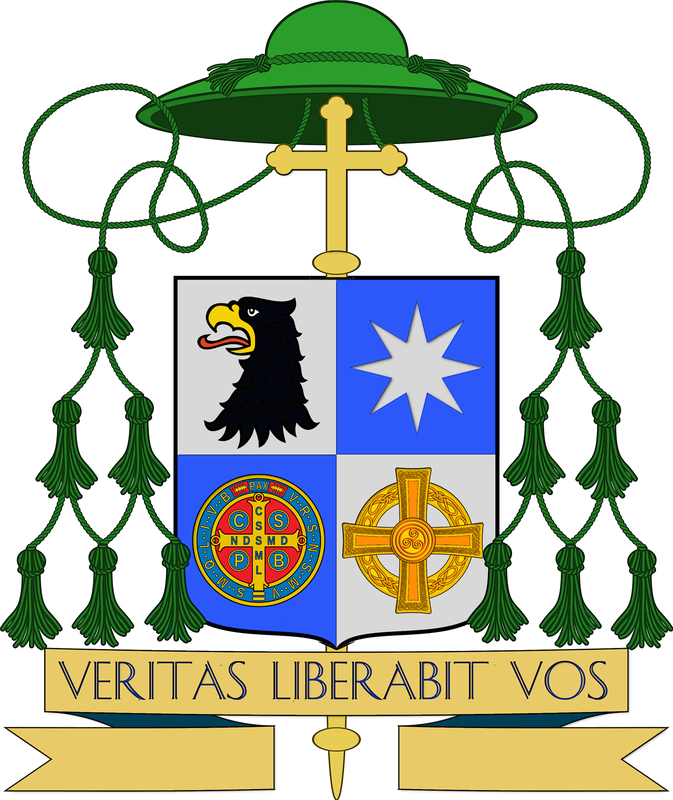
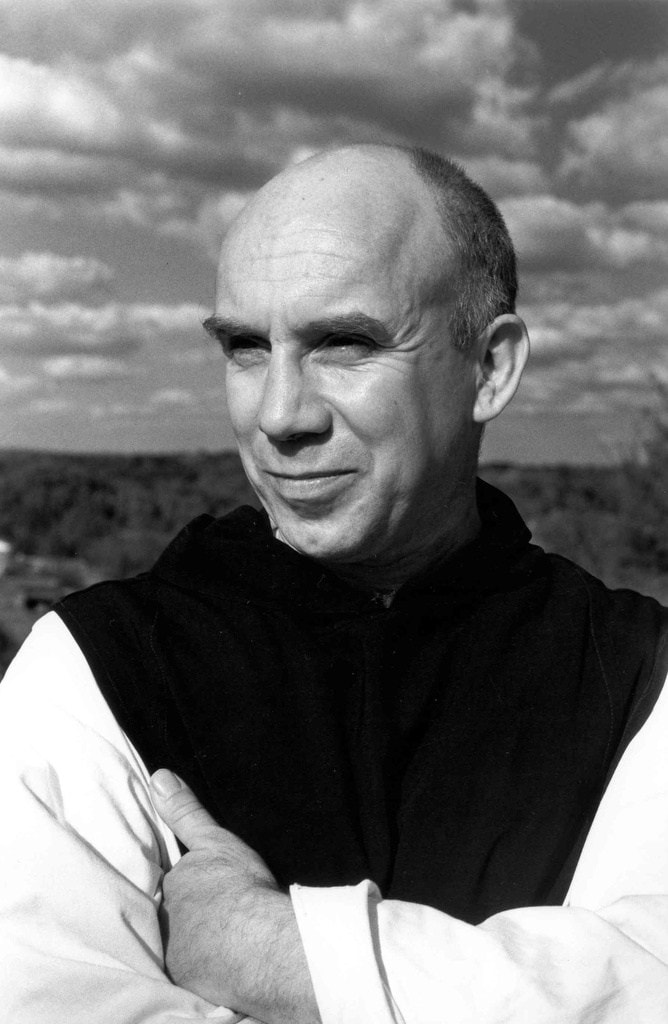
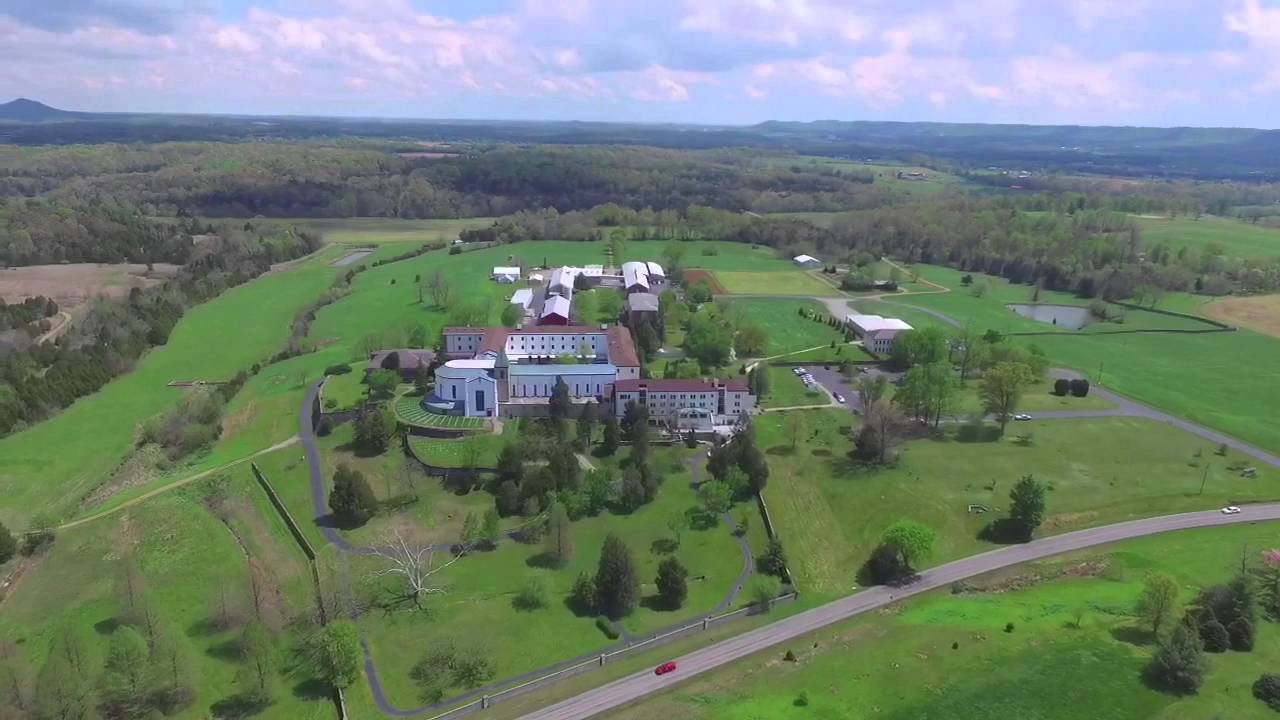
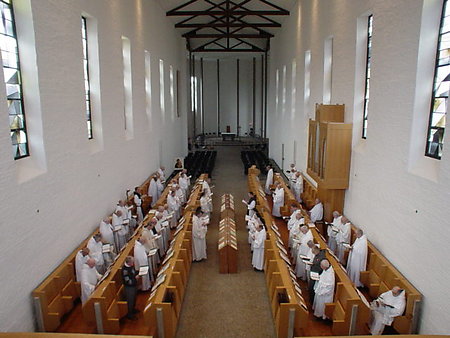
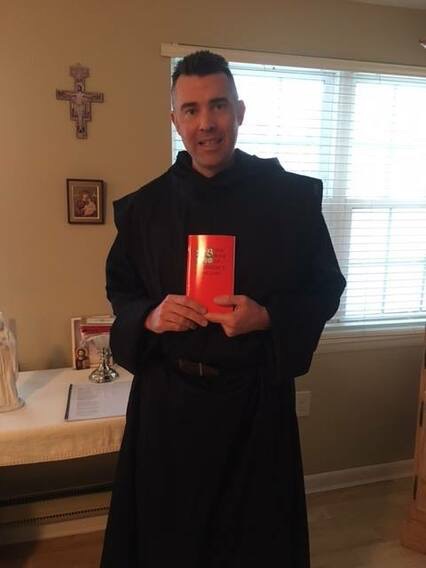
 RSS Feed
RSS Feed
